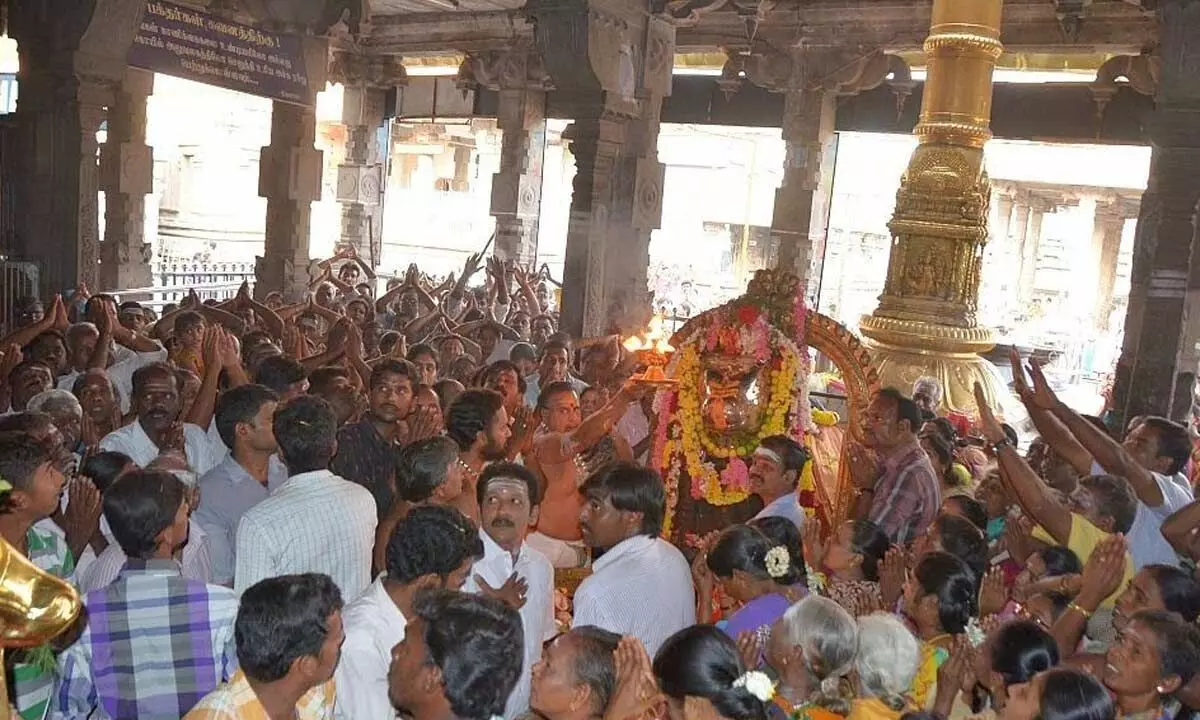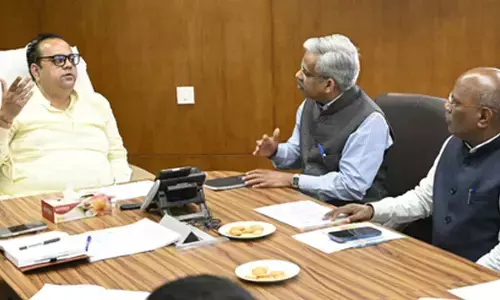Checking Our Spirituality

Man’s relationship with God is in several ways. We go to a temple, bow before God and submit our prayers and problems, seeking solutions.
Man’s relationship with God is in several ways. We go to a temple, bow before God and submit our prayers and problems, seeking solutions. We also donate something in the charity box. Sometimes there is a promise of offering something if God fulfils a particular desire. This is a type of trade, but it never occurs to us. Some do penances if a desire is fulfilled. Some others do ‘parayanam’ of some text which they consider sacred, or ‘powerful’. Some others, brought up in a tradition may do a prescribed ritual at home, as part of the daily regimen, as a duty. Some others study and teach scriptures and are known as pundits. Some perform elaborate rituals, called yajnas. Some others do not go to temples, do not perform any rituals, but read philosophical texts and assume that they are on a spiritual path.
Man’s relationship with God is in several ways. We go to a temple, bow before God and submit our prayers and problems, seeking solutions. We also donate something in the charity box. Sometimes there is a promise of offering something if God fulfils a particular desire. This is a type of trade, but it never occurs to us. Some do penances if a desire is fulfilled. Some others do ‘parayanam’ of some text which they consider sacred, or ‘powerful’. Some others, brought up in a tradition may do a prescribed ritual at home, as part of the daily regimen, as a duty. Some others study and teach scriptures and are known as pundits. Some perform elaborate rituals, called yajnas. Some others do not go to temples, do not perform any rituals, but read philosophical texts and assume that they are on a spiritual path.
All the above are good, religious or learned people, but none of the above is covered by the word spirituality, (called ‘adhyatma’ in Sanskrit). Any of the above, or combination of them, devoid of inner discipline, does not become spirituality. That is why Krishna talks about karma yoga as the first step and then goes on to say ‘atma-samyama’, self-purification. The word ‘adhyatma’ means “in one’s self”. In other words, it means ‘examining the self. One may say, I know my own self, meaning the social identity, but that is not purification.
Spirituality involves examining our own dispositions, inclinations, desires, hatreds, jealousies and consciously trying to get rid of the negative tendencies. It means cultivation of tendencies such as compassion, integrity, dispassion, not doing harm, physical or mental, to others, reducing desires and such. These practices purify the mind and make one eligible to study and practice Vedanta. Conscious practice of dispassion (called ‘vairagya’) and study of scriptures are both to be done simultaneously. They are like the two wings of a bird, without which the seeker cannot soar high and reach the top of the mansion called moksha.
Religious rituals are acts done by the body. A person can get ready in a special silk dress, invite a purohit and merely follow his directions, with all his desires and hatred intact. Spirituality tasks the mind. It is the task of getting rid of the impurities of the mind. Unlawful, or unethical acts the body wants to do can be consciously controlled by the mind, which knows the consequences. But who has to control the mind? It is a constant practice, simultaneous with the study of scriptures. Study of scriptures helps dispassion, and dispassion makes one know and internalize the meaning of scriptures better. Thus, they complement each other.
The story of Vishwamitra was mentioned in an earlier episode. Vishwamitra starts tapas with ‘tamo-guna’ dominating his mind. He wants to kill Vasishta, but all his divine weapons become futile. He performs tapas again but his ‘rajo-guna’ makes him do impossible acts like creation of a parallel heaven, wasting his tapas by his desire for the divine damsel Menaka. Indra, the invigilator, sends another damsel, Rambha, to test the anger level of Vishvamitra, but he again falls prey by showing anger. He sits for tapas again, and when Indra tests him again, he is doing ‘sattvika’ tapas by conquering his ‘kama and krodha’ (anger). The gods grant him the status of a ‘brahmarshi’. He had gone beyond his desire to conquer Vasishta.
Mere spiritual practices may lead to hubris in a person. Such a person may not be a good role model for his children because he does not follow any religious discipline and there is no means to measure his spirituality. Similarly, mere rituals, however elaborate they may be, may lead to arrogance. Vedanta suggests that both can be avoided by devotion to God. It is like keeping God as a witness to all our activities. Indian tradition recommends a comprehensive approach to attain liberation. It is a combination of one’s duty, self-purification and internalizing of scriptures.
(The writer is a former
DGP, Andhra Pradesh)




